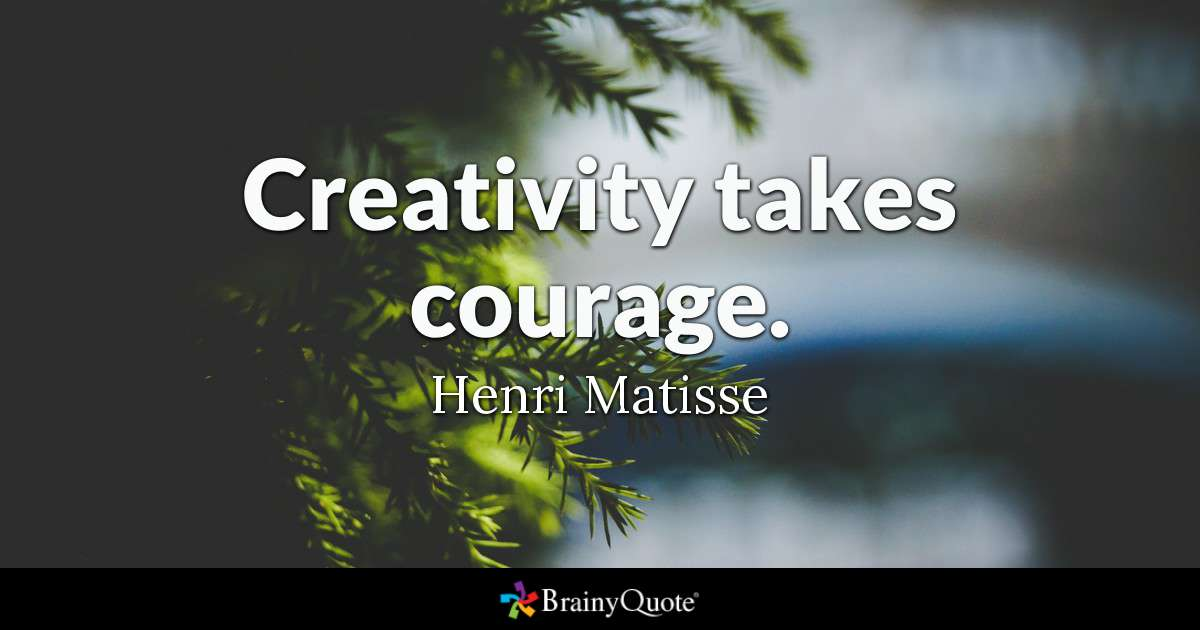because done is always better than perfect

If I waited for perfection… I would never write a word.
Margaret Atwood
Do you have a zombie work?
It’s the one piece you can’t get right, a short story or blog post or novel that haunts your hard drive.
You’re stuck because you can’t figure out the right style of the gowns in your Imperial court, or your research on spring weather patterns in Kansas has led down increasingly arcane corridors.
You’ll publish or submit, someday. But it’s not perfect yet, so the world never sees it.
What Are You Afraid Of?
We’re scared to death to try new things because we think we have to get it right the first time.
Joel Salatin
Perfectionists often procrastinate. You believe if a thing’s worth doing, it must be done properly and nothing less will do. So you either rework and edit endlessly, or you don’t even start because you can never get it absolutely right. And you can’t edit an empty page.
You conceal these feelings behind strong psychological defences and sublimate them into pointless activity. But research isn’t writing. At some level, you know that and you’re disappointed with yourself.
At the heart of perfectionism is fear.
Fear of failure.
Fear of success, because then you have to do it again, leading back to fear of failure.
To overcome perfectionism, you need to understand your fear and master it. Courage is not the absence of fear, it is action despite feeling fear.
Courage is taking a deep breath and doing it anyway because your desire for something is greater than the fear of what might happen.
If you never challenge yourself to move past fear, you cannot improve or grow. In order to step out there and thrive, you’ll need to let some ideas go and embrace new thinking.
Start With The Bad Stuff
Have no fear of perfection — you’ll never reach it.
Salvador Dali
Fear is a basic emotion that we all understand. You fear humiliation and ridicule for getting something wrong. Perhaps you replay some old memory of being laughed at for a minor error, and that underlies your current avoidant behaviour.
There are two reasons why you should leave that in the past where it belongs.
- Everybody sucks at the beginning. Every author, actor, artist, or sports person you admire now was once terrible at their chosen discipline. They wrote awful prose, missed more shots than they scored, and forgot their lines on stage. But they carried on and used those early failures to improve over time. Nobody has a perfect score overall.
- People aren’t actually watching that closely. They are as consumed by their inner lives as you are by yours. Even if they look your way, they forget you the next moment as their own drama takes over. Though you might feel as though everyone is looking at you, they’re really not. In psychology, this is known as the spotlight effect. Knowing about the spotlight effect is liberating. It frees you to do whatever you need to do without the pressure of a supposed audience.
Act Like A Baby
Babies are the world’s fastest learners. From zero, they learn to feed, walk, talk, and live in a social unit, all within two years. They achieve this not by being perfect, but the opposite. They stumble, fall, stand up again.
They babble nonsense and parrot speech without understanding at first. Eventually, they achieve a level of competence that allows them to run, jump, and sing a nursery rhyme.
They don’t beat themselves up because they can’t yet recite Shakespeare. They simply chatter and listen to adults when corrected. Each time they repeat, they’re closer to the goal of intelligible speech.
You learned to speak, walk, and countless other complex skills in the same way. If you had waited to speak until you were perfect, you wouldn’t have uttered a word for years.
Cultivate a beginner’s mind. Understand that supposed errors are signposts back to the right path, and you’re much less fearful of your results. Judge not against some unattainable level of perfection, but against where you were last time you tried.
You already know how to learn and improve. Adjust your aim, and try again.
Less Isn’t More
That which we persist in doing becomes easier — not that the nature of the task has changed, but our ability to do has increased.
Ralph Waldo Emerson
Oh, you say, but you prefer quality over quantity. People repeat this justification for low output as if it were gospel truth. It’s completely wrong.
In an experiment, students in a ceramics class were split into two groups. One group was told that they could get an A by turning in one perfect piece. The other group was told that they would be graded solely on the total weight of pieces produced, of any quality.
The results were surprising.
The second group produced a large number of extremely good pieces. They were liberated from the pursuit of perfection and given free rein to experiment without being penalised. I’d bet money they were happier with their work too.
Repeated practice increased their skills and confidence. They weren’t paralysed by over-analysis or worried about criticism. They did not fear the impossibility of lightning striking twice, because they knew how to create a storm. They were able to replicate good work because they understood what went into making it.
The more you make, the better you get. Quantity leads to quality.

Let It Go
Art is never finished, only abandoned.
Leonardo da Vinci
How much poorer we would be if Dali had refused to let anyone see his paintings, or if Michelangelo had obsessively chipped away at and repolished his David. Remember also that an artist’s most famous works comprise only a fraction of their total output.
Writers learn more from finishing one story than from starting and abandoning ten. You’ll learn where you wrote yourself into a corner, and how to figure your way out. You’ll learn how many plots you can juggle. You’ll learn what makes a good ending. And eventually, you’ll join up all those skills and move from conscious competence to unconscious competence.
In other words, you will master your craft and spend more effort on deciding where to put the ball than how to kick it.
At some point, you have to declare a thing finished and stop editing. The more refined your skill, the harder it is. You always feel there is just one more thing you could improve.
Let it go. Ship it. Publish, submit, and move on to the next thing.
That’s the secret; always have a next thing. Each piece becomes a little less precious when it forms a smaller part of your portfolio. You may still have your favourites and the ones you shrug over, but the whole collection is what matters.
Confidence comes from improvement. You know you can make another piece, and it might be even better than the last. And if it’s not, that’s okay too.
That is true creative freedom.









